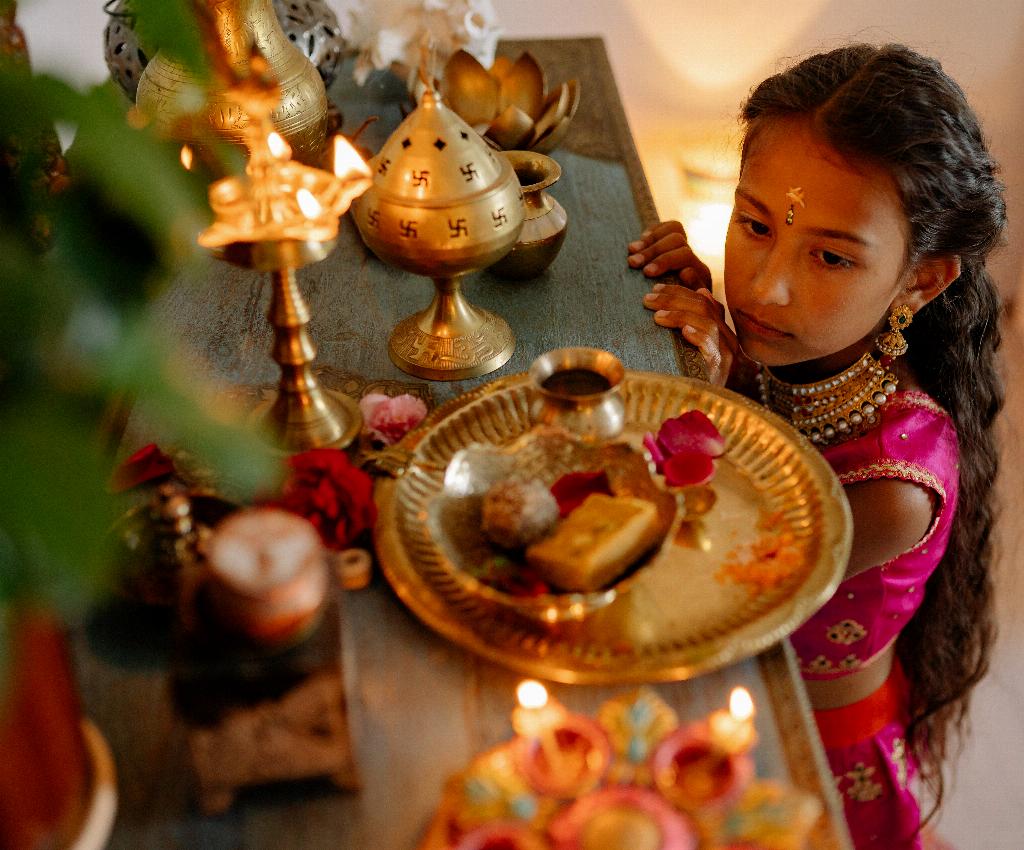In today’s diverse world, it is essential to foster understanding and respect among different religions. Two of the world’s major religions, Hinduism and Islam, have unique beliefs, practices, and origins. Exploring the main differences between Hinduism and Islam can help us appreciate the rich tapestry of human spirituality and foster interfaith dialogue. Let’s delve into the distinguishing aspects of these two religions.
Origins and History
Hinduism, one of the oldest religions in the world, originated in the Indian subcontinent thousands of years ago. Its historical development over centuries is characterized by a rich amalgamation of cultural, philosophical, and religious traditions. In contrast, Islam emerged in the 7th century CE in the Arabian Peninsula through the teachings of Prophet Muhammad. It quickly spread across the Middle East, Asia, and Africa, establishing a distinct monotheistic faith.
Beliefs and Concepts
Hinduism is characterized by a complex array of beliefs and concepts. It is primarily a polytheistic religion, where worship is directed towards various deities known as Devas. Additionally, Hindus believe in the concepts of karma and reincarnation. According to Hindu philosophy, individuals accumulate karma based on their actions, influencing their future lives until they ultimately achieve moksha (liberation) from the cycle of birth and death by attaining spiritual enlightenment through dharma (righteous living).
On the other hand, Islam is a monotheistic religion centered on the belief in Allah, the one and only God. Muslims follow the Five Pillars of Islam, which are the foundational principles of the faith. These pillars include the declaration of faith (Shahada), ritual prayer (Salah), charitable giving (Zakat), fasting during the month of Ramadan (Sawm), and the pilgrimage to Mecca (Hajj). Islam also emphasizes the belief in judgment day and the afterlife, where believers are rewarded or punished based on their deeds in this life.
Religious Texts and Authorities
Hinduism doesn’t have a single central religious text like Islam’s Quran. Instead, it encompasses a vast collection of sacred texts, including the Vedas, Upanishads, and the Bhagavad Gita. These texts contain hymns, rituals, philosophical discourses, and moral teachings. Hindu religious authorities consist of gurus, saints, and spiritual leaders who guide their followers in understanding and practicing the faith.
Islam, on the other hand, reveres the Quran as the divine word of Allah. It is believed to be a direct revelation to Prophet Muhammad. Alongside the Quran, Islamic scholars reference the Hadiths, which are collections of the Prophet’s sayings and actions. Scholars and imams serve as authoritative figures in interpreting and disseminating Islamic religious teachings.
Worship and Rituals
Hindu worship varies greatly due to its diverse traditions and regional practices. Devotees engage in rituals both at temples and in their homes. Temples serve as places of community gathering and prayer, offering a space for individuals to connect with the divine. Festivals, such as Diwali and Holi, are celebrated with great pomp, involving rituals, music, dance, and feasting.
In Islam, worship is focused primarily on congregational prayers performed at mosques. Muslims gather to pray five times a day, facing the Kaaba in Mecca. Friday prayers hold special significance as congregants come together for a communal sermon. Additionally, Muslims observe fasting during Ramadan, a month-long period of spiritual reflection, self-discipline, and charity.
Social Structure and Community
Hinduism has historically been associated with a hierarchical social structure known as the caste system. This system divides society into different social classes, known as varnas, with assigned roles, privileges, and duties. The Brahmins, traditionally priests and scholars, hold the highest status. Within the community, religious leaders such as priests guide spiritual practices.
Islam, on the contrary, emphasizes equality and brotherhood among its followers. There is no rigid social hierarchy or caste system within the religion. Spiritual leaders, known as imams, guide the community in matters of religious understanding and practice, fostering unity and inclusivity.
Approaches to Life and Ethics
Hinduism encourages individuals to lead a life of righteousness and fulfill their duties according to their prescribed roles within society (dharma). The ethical principle of non-violence (ahimsa) is highly regarded, emphasizing compassion towards all living beings. Hindus strive to live in harmony with the world and seek spiritual liberation.
Islam emphasizes submission to the will of Allah (Islam) as the central focus of life. Muslims strive to obey Allah’s commands and live a life of piety. Ethical principles within Islam include justice, compassion, honesty, and generosity, which guide the actions and relationships of believers.
Interactions with Other Religions and Cultures
Hinduism has a long history of interfaith interactions characterized by religious tolerance and acceptance. Hindu thought has deeply influenced various aspects of Indian culture, including art, music, philosophy, and literature. The religion advocates respect for all faiths and acknowledges different paths to a higher truth.
Islam promotes interfaith relations and peaceful coexistence with other religions. The Islamic civilization, with its advancements in science, art, and philosophy, has left a lasting impact on global culture. Muslims believe in the unity of all believers and advocate for mutual respect and understanding across religious differences.
Contemporary Issues and Challenges
In modern times, Hinduism grapples with issues related to interpretation and reform. Different sects and schools of thought within Hinduism have varying perspectives on social issues, gender equality, and caste discrimination. Efforts are being made to promote inclusivity, equality, and spiritual harmony within the religion.
Islam faces challenges such as misconceptions, stereotypes, and Islamophobia in many parts of the world. Muslims strive to address misinterpretations of their faith and create a deeper understanding among different communities. Balancing traditional practices with modern sensibilities and creating a harmonious society is another ongoing challenge faced by Muslims worldwide.

Conclusion
Hinduism and Islam are thriving religious traditions with distinct beliefs, practices, and histories. Hinduism encompasses a diverse tapestry of gods and spiritual concepts, while Islam emphasizes the belief in the oneness of Allah and living a life of submission to His will. Understanding and respecting these main differences enable us to foster interfaith dialogue, appreciate the richness of human spirituality, and promote unity in diversity.
